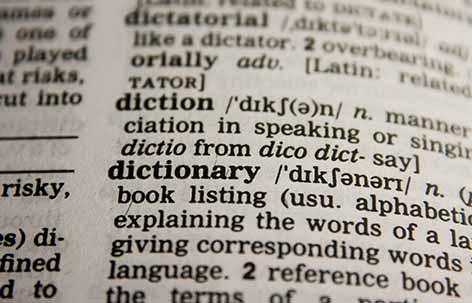How to Improve IELTS Writing Task 2 Essay? (5 Tips)
In IELTS Writing Task 2, you need to write an essay on a given topic. Writing an essay may often seem a difficult and also daunting task. But don't worry, it will become a lot easier and make better sense as you follow along.
We advise you to take time to read the 5 Tips on how you can improve your writing skills for IELTS and achieve a high score.
TIPS

Prepare smarter, not harder, and writing tasks won't stop you from getting the band score you deserve!
-
Keep your IELTS Essay structure simple
There is a ton of information available online about different types of IELTS essays, and if you are a self-learner, it is easy to get confused. Especially, when the information is often conflicting as well. Therefore, we recommend that you do not worry about identifying what type of essay you must write or what structure you need to follow. It is all redundant and unnecessary.
Although there are 5 Different Types of IELTS Essays, learning about suggested essay structures one by one just overburdens you and at the end of the day, there is no actual benefit. All that matters is to answer all the questions and stick to that. It is as simple as that! You just need to address all parts of the task. That's it!
“Don't worry too much about learning different rules, structures and types of essays. You just need to read the task carefully and write directly in response to your writing task prompt.Take time to read the essay question and answer it completely and directly. There is no need to overthink whether the essay is this or that type and which structure you need to use. You will do yourself a favour when you skip learning about "the right" essay structures to follow as there are none found. Instead, trust yourself and listen to your gut.
-
Plan your IELTS essay before you write
Think and plan before you write! It is necessary to brainstorm for at least 2-5 minutes. Write down all the keywords and phrases that come to your mind, and then organise your ideas by making a simple plan for the IELTS essay structure. The more you practice essay writing, the faster you will become at brainstorming.

It is crucial to keep in mind what the task prompt asks you to do. If you fail to address all parts of the writing task prompt, achieving a high score will become unlikely. So, by making the plan make sure you answer all the questions!
For example, if you need to discuss both views, then make sure that you have one body paragraph for one view, another for another view and so forth.
“Do not underestimate the importance of planning. Take at least a couple of minutes for brainstorming and organising your ideas before writing.Stick to the plan and use the words, phrases and ideas that have come to your mind while brainstorming.
-
Show good grammar and vocabulary
To write a high-level IELTS essay and attain a high score, you need to demonstrate that you can use a variety of sentence structures and vocabulary. For example, use different tenses, conditionals, passive voice, wide vocabulary and avoid repeating the same words.




You need to find a good balance between showing your writing skills and feeling comfortable.
“Do not use words and sentences that you are not sure about; otherwise, you could end up producing a worse essay.Using good language in your essay does not mean that you know some sophisticated sentences by heart that you are desperately trying to use in your essay. It is a bad practice, and we recommend that you should avoid doing that.
If your overall usage of language is consistent throughout the essay and then, all of a sudden, you use a very complex sentence, it looks unnatural. Furthermore, IELTS examiners consider this to be a learned expression and, as a result, it pushes your score downwards.
-
Write coherently and use cohesive words
Writing coherently will surely give your score an extra boost. Actually, "Coherence and Cohesion" is one of the four band criteria your writing will be evaluated on. Therefore, it is super useful to learn linking words along with IELTS essay vocabulary. You can use these resources all the time while studying.
After writing about 3 IELTS essays, many good phrases and linking words will glue to you. You will find out your favourite ways to start and end the essays, state viewpoints and add arguments.
As a result, the essay becomes easier to write, and you will be a lot quicker too. But do not memorise long phrases or sentences; these samples are all listed just for inspiration. However, learning words for different topics is highly recommended! It will give you ideas and the ability to express yourself.
-
Get feedback on your IELTS essay and practice
Finally, it is important to get feedback on each practice essay you write. The key to improving your IELTS essay writing is to get your writing task reviewed by a qualified IELTS professional, so you can learn from feedback and improve your writing skills.

Writing evaluation gives you an idea of what level you are at and what band score your writing would likely get. You will learn about your weak areas, and you will receive tips and suggestions on how to improve them.
If you struggle and want to improve your writing skills, let IELTS experts help you. The last thing you want to happen is to discover your weaknesses on the exam day, especially if the result is unsatisfying for you. After all, taking the exam gives you nothing but a plain band score that carries absolutely no weight regarding feedback: you will not get to know your mistakes and why you failed.
So, instead of risking failure, consider using the IELTS writing correction service to be better prepared, achieve your desired result on the first try and ultimately become better at writing.
Want to send your own tasks for the assessment?➤Send your tasks to an IELTS teacher today!➤
"I have 7+ years of IELTS teaching experience. I will correct your grammar and give suggestions for more appropriate word use. I will give you tips on how to answer the question in the way the IELTS examiners expect."
— Claudia, IELTS teacher from the UK
MORE ESSAY RESOURCES

IELTS Essay Writing

5 Types of IELTS Essays

How to Improve IELTS Writing Task 2 Essay?

IELTS Discussion Essay Sample

IELTS Agree / Disagree Essay Sample

IELTS Advantage / Disadvantage Essay Sample

IELTS Problem / Solution Essay Sample

IELTS Two-part Question Essay Sample

Vocabulary for IELTS Essay

